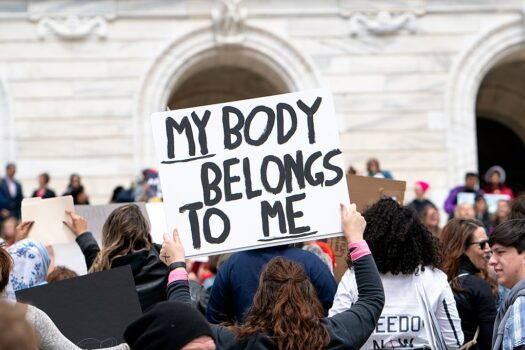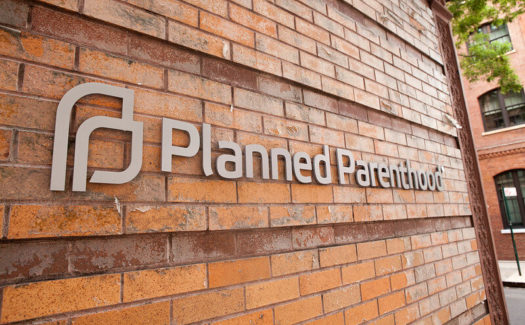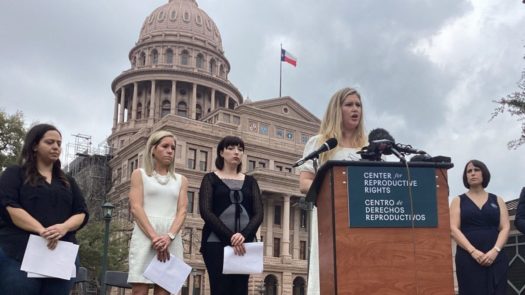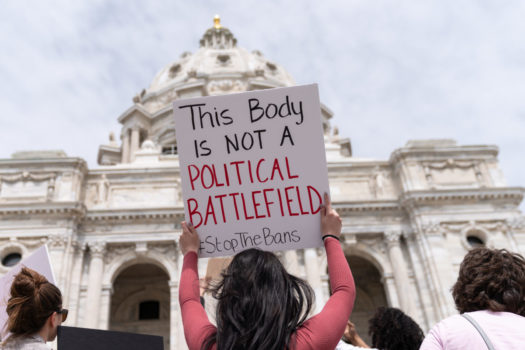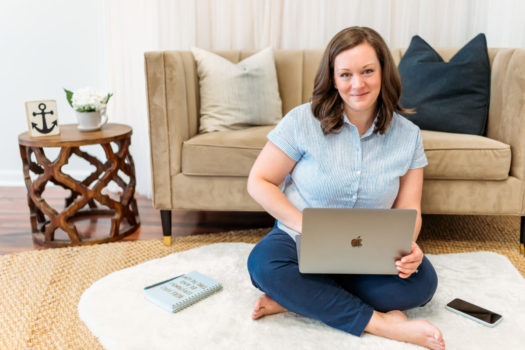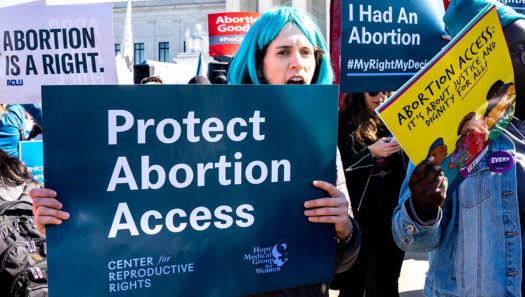
Statistics have the power to convey the true scope of a problem. But it’s personal stories that could lead to action.
In the U.S., the data paint a harrowing picture when it comes to abortion access. The maternal death rate in our country – already abnormally high in comparison to other wealthy nations – is expected to jump up as much as 24% following last year’s reversal of Roe v. Wade. The loss of federal protection for abortion access paved the way for a tidal wave of restrictions and the enactment of trigger laws, making it illegal to get an abortion in most every context in 15 states, and exceedingly difficult in several others. Maternal and infant death rates are already notably higher in those states, specifically.
Fear of legal retribution, combined with hardships such as prohibitively long travel times to the abortion clinics left standing, is harming Americans in droves. Tens of millions of people are hurt by the bans themselves. Plus, an estimated 2 million women now reside in counties where they cannot access abortion services or maternal health care.
The figures are staggering – and at times, they can be difficult to wrap one’s head around.
That’s why experts say storytelling is needed to humanize the people behind the numbers. Because it’s the stories that stay with us – some of them, heart-wrenching ordeals rife with needless suffering caused by one thing: lack of abortion access. Scenarios that can, and will, play out for thousands, even millions more in America.
The Story Exchange spoke with Planned Parenthood about its Our Abortions, Our Stories program, through which individuals who have had abortions share their “why,” whatever it may be, in hopes of fostering understanding. (Organizations such as Shout Your Abortion and We Testify offer similar opportunities.) And, we connected with two storytellers – Carolyn, a woman who had to travel out of state to abort a non-viable pregnancy with almost no notice; and Ash, a transgender person who says their abortion saved them from dying by suicide.
The interview provides context for understanding the critical state of the nation, and the importance of these stories as an activism tool; the personal experiences drive home that broader need for access to safe, legal abortions.
Below, you can read our discussion with Planned Parenthood, as well as these individual abortion tales.
Planned Parenthood Says Empathy Could Turn the Post-Roe Tide
Planned Parenthood offers people a way to tell their abortion stories publicly. It’s cathartic, officials say – and it might be what’s needed to change anti-abortion minds and hearts.
Carolyn Had to Flee for an Abortion. She’s Grateful She Had One at All
Carolyn was forced to leave Texas for an abortion after learning her baby wouldn’t survive, then suffered complications while hundreds of miles from home.
Ash ‘Would Not Be Standing Here’ Without an Abortion
Ash was a closeted transgender person in an abusive relationship weathering a high-risk pregnancy. Suicide felt like the only option – until an abortion saved their life.
More from The Story Exchange on Abortion…
Planned Parenthood Launches First Mobile Abortion Clinics
Mobile facilities will reduce travel times for patients from other states by meeting them at the borders.
5 Women Are Suing Texas for Abortion Access, After Bans Nearly Killed Them
The lawsuit, brought by women who suffered dangerous pregnancy complications, is the first of its kind following the overturn of Roe v. Wade.
FDA Now Allowing Pharmacies to Dispense Abortion Pills
Many are hopeful the change will expand abortion access as more states place restrictions on reproductive healthcare.
In a Post-Roe World, These 5 Youth Activists Are Fighting for Abortion Rights
Women who grew up with federal protections are now mobilizing to keep them.
Having an Abortion Allowed This Marketing Specialist to Start Her Own Business
Jessica Ponyrko’s abortion gave her the freedom to change her life for the better. And hers is just one story.
5 Groups That Help People Access Abortions
Abortion funds and volunteers networks have been assisting people overcome obstacles for years. Many need donations or support.


